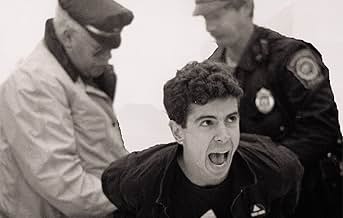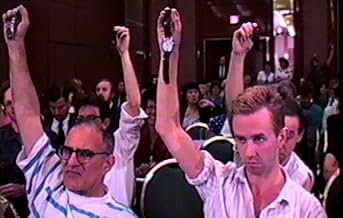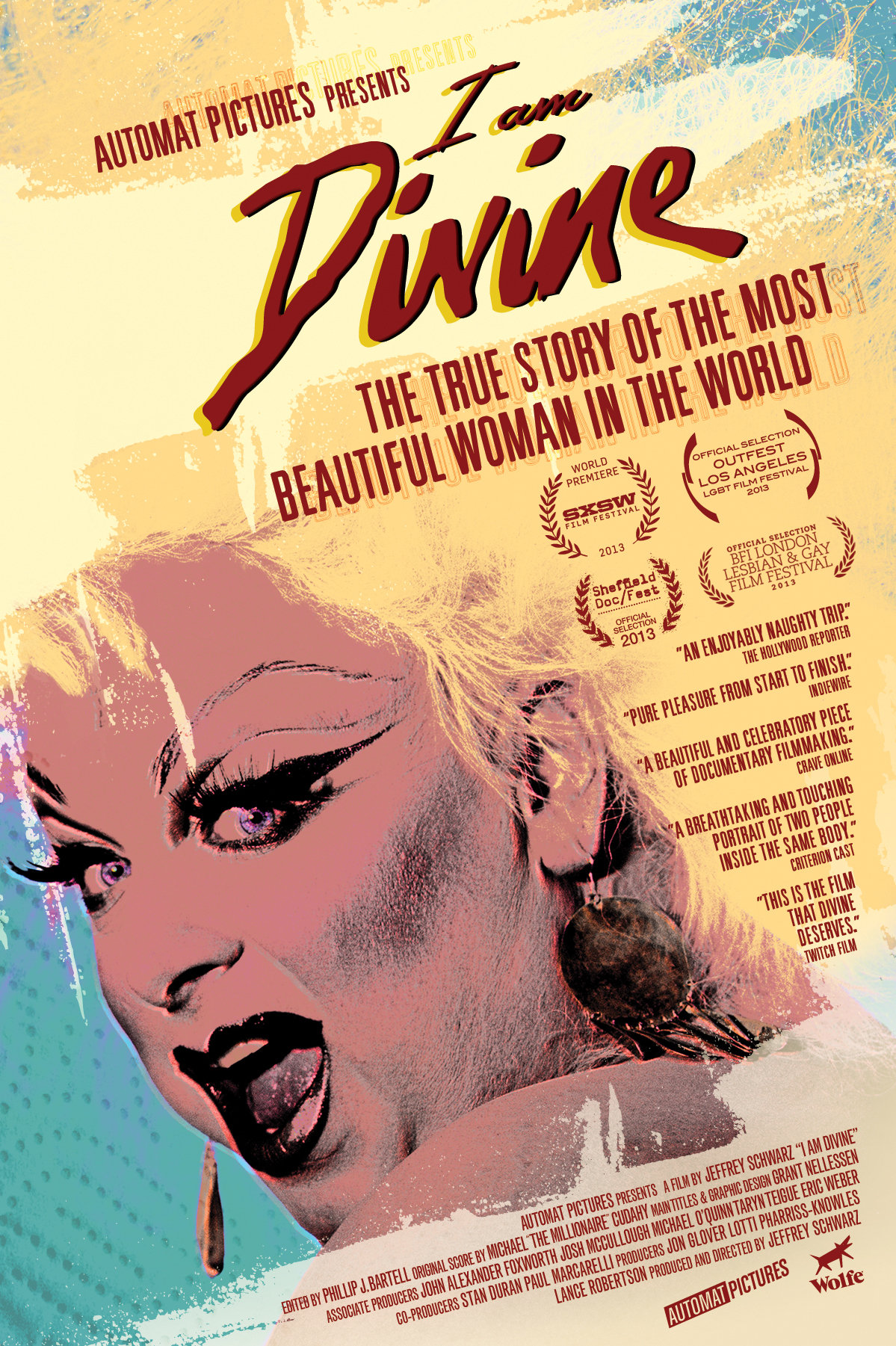IMDb RATING
7.6/10
4.5K
YOUR RATING
The story of two coalitions -- ACT UP and TAG (Treatment Action Group) -- whose activism and innovation turned AIDS from a death sentence into a manageable condition.The story of two coalitions -- ACT UP and TAG (Treatment Action Group) -- whose activism and innovation turned AIDS from a death sentence into a manageable condition.The story of two coalitions -- ACT UP and TAG (Treatment Action Group) -- whose activism and innovation turned AIDS from a death sentence into a manageable condition.
- Nominated for 1 Oscar
- 13 wins & 21 nominations total
Iris Long
- Self - Retired Chemist
- (archive footage)
- (as Iris Long PHD)
Bob Rafsky
- Self - PR Executive
- (archive footage)
Ed Koch
- Self - Mayor of New York
- (archive footage)
Barbara Starrett
- Self - AIDS Physician
- (as Dr. Barbara Starrett)
Franke-Ruta Garance
- Self - Teenager
- (as Garance Franke-Ruta)
Mathilde Krim
- Self - AMFAR, The Foundation for AIDS Research
- (as Mathilde Krim PHD)
Jesse Helms
- Self - R - North Carolina
- (archive footage)
Featured reviews
How to Survive a Plague (2012)
**** (out of 4)
David France's excellent documentary takes us back in time to see the fight AIDS activists had to go through in order to get where we are today. Through video clips, interviews and other forms of video footage we see how the times changed throughout the years while the main focus of the film is set during the late 80s and early 90s when political indifference and a lack of any plan caused millions of people to die while drugs that might have helped them weren't being given to them. What's so great about this movie is that it uses video footage from throughout the decades to tell its story. It could be media reports, underground videos, appearances by people on talk shows or various other forms of footage that really gives one a terrific idea of this uphill fight. Director France does a rather remarkable job editing the footage together to give the viewer a complete idea of what it was like during these times when it seems no one could agree on what to do next. The film covers the activists hopes for what would happen, the politicians refuses to step in for a variety of reasons and even the Catholic church's controversial statement that condoms were sinful. I thought the film really did do a great job at showing future generations the "war" that these people were pretty much going through in order to try and get something done. Some will argue, perhaps rightfully, that the film is too one-sided since it only gives off one side. I understand this argument and I would have liked to have heard from some of the medical departments on why more wasn't done. Still, HOW TO SURVIVE A PLAGUE is a pretty haunting and dramatic little picture that will certainly be a staple of its subject for years to come.
**** (out of 4)
David France's excellent documentary takes us back in time to see the fight AIDS activists had to go through in order to get where we are today. Through video clips, interviews and other forms of video footage we see how the times changed throughout the years while the main focus of the film is set during the late 80s and early 90s when political indifference and a lack of any plan caused millions of people to die while drugs that might have helped them weren't being given to them. What's so great about this movie is that it uses video footage from throughout the decades to tell its story. It could be media reports, underground videos, appearances by people on talk shows or various other forms of footage that really gives one a terrific idea of this uphill fight. Director France does a rather remarkable job editing the footage together to give the viewer a complete idea of what it was like during these times when it seems no one could agree on what to do next. The film covers the activists hopes for what would happen, the politicians refuses to step in for a variety of reasons and even the Catholic church's controversial statement that condoms were sinful. I thought the film really did do a great job at showing future generations the "war" that these people were pretty much going through in order to try and get something done. Some will argue, perhaps rightfully, that the film is too one-sided since it only gives off one side. I understand this argument and I would have liked to have heard from some of the medical departments on why more wasn't done. Still, HOW TO SURVIVE A PLAGUE is a pretty haunting and dramatic little picture that will certainly be a staple of its subject for years to come.
By using (mostly) never before seen archival footage, David France's unflinching documentary "How to Survive a Plague" DOCUMENTS the early epidemic of the AIDS virus in the United States, during a time when it was seen as a death sentence.
With a mixture of video from protests, support rallies and home movies, France portrays actual struggling AIDS victims/activists as their friends and family members begin to go blind and die around them, and the US government does little in way of assistance. France also does a great job of not only showcasing the overwhelming amount of discrimination during the 80's and 90's, which altogether ostracized anybody with AIDS or people that had any linkage to the gay communities, but succeeds in his attempts to dissect the human condition, by showing how far a determined group of people are willing to go for change.
The rest of the footage, which shows government officials such as former Senator Jesse Helms, former President Ronald Regan and former President George Bush Sr. is maybe the most shocking aspect of this film; as they come off as negligent and at times so blatantly prejudiced, that it's disturbing to think how everything depicted here took place only between 20 and 30 years ago.
Beginning in New York with the denial of the AIDS epidemic by former New York Mayor Ed Kotch, to the introduction of the highly toxic drug AZT (the most expensive drug on the market at the time, and the only one used to prolong the life of AIDS patients) to the Roman Catholic Church condemning the use of condoms, and ending with the evolution of ACT UP and TAG (Treatment Action Group) a group of activists (most of whom had the AIDS virus themselves) who revolutionized the way AIDS was treated, turning it into a manageable condition; the importance of this film lies in its documentation of a disenfranchised people during a time in American history that isn't broached in the classroom. But equally as interesting as the subject matter, is how creatively this documentary is put together. This archival footage format is truly an ingenious way to tell a narrative, really working on an almost purely visceral level to capture the times and atmosphere of a real life American revolution, in a way not many documentaries have the ability to do.
Final Thought: "How to Survive A Plague" is not only an informative, fascinating, and sure to be award winning film, but also one of the most powerful documentaries of 2012. There's not much more I can say about this documentary, other than that actually sitting down and witnessing what this film has to say, for yourself will undoubtedly create a deeper impact and elicit more of an emotional response than any mere words can say.
Written by Markus Robinson, Edited by Nicole I. Ashland
Follow me on Twitter @moviesmarkus
With a mixture of video from protests, support rallies and home movies, France portrays actual struggling AIDS victims/activists as their friends and family members begin to go blind and die around them, and the US government does little in way of assistance. France also does a great job of not only showcasing the overwhelming amount of discrimination during the 80's and 90's, which altogether ostracized anybody with AIDS or people that had any linkage to the gay communities, but succeeds in his attempts to dissect the human condition, by showing how far a determined group of people are willing to go for change.
The rest of the footage, which shows government officials such as former Senator Jesse Helms, former President Ronald Regan and former President George Bush Sr. is maybe the most shocking aspect of this film; as they come off as negligent and at times so blatantly prejudiced, that it's disturbing to think how everything depicted here took place only between 20 and 30 years ago.
Beginning in New York with the denial of the AIDS epidemic by former New York Mayor Ed Kotch, to the introduction of the highly toxic drug AZT (the most expensive drug on the market at the time, and the only one used to prolong the life of AIDS patients) to the Roman Catholic Church condemning the use of condoms, and ending with the evolution of ACT UP and TAG (Treatment Action Group) a group of activists (most of whom had the AIDS virus themselves) who revolutionized the way AIDS was treated, turning it into a manageable condition; the importance of this film lies in its documentation of a disenfranchised people during a time in American history that isn't broached in the classroom. But equally as interesting as the subject matter, is how creatively this documentary is put together. This archival footage format is truly an ingenious way to tell a narrative, really working on an almost purely visceral level to capture the times and atmosphere of a real life American revolution, in a way not many documentaries have the ability to do.
Final Thought: "How to Survive A Plague" is not only an informative, fascinating, and sure to be award winning film, but also one of the most powerful documentaries of 2012. There's not much more I can say about this documentary, other than that actually sitting down and witnessing what this film has to say, for yourself will undoubtedly create a deeper impact and elicit more of an emotional response than any mere words can say.
Written by Markus Robinson, Edited by Nicole I. Ashland
Follow me on Twitter @moviesmarkus
This film is recommended.
David France's documentary, How To Survive A Plague, chronicles the devastating effect of AIDS upon the gay community from the mid eighties to present day. Through archival footage and direct interviews with activists and patients who fought against government bureaucracy, homophobia, and ignorance, the film also shows the history and political beginnings of gay, lesbian, and trans-genders who formed a group called ACT UP. This organization courageously battled the FDA, pharmaceutical companies, politicians, and hate- mongers, like Jesse Helms and his ilk, to try to stop this disease from reaching epidemic proportions with protest marches, sit-ins, and angry demonstrations to make the world aware of the severity of the problem.
The film covers nearly two decades of public outcry and disdain for the lack of tolerance and expediency in preventing this scourge. At times, the documentary shows some of the protests against various institutions like the Roman Catholic Church, Ronald Reagan and George Bush, and Congress in sketchy terms with some details lacking. But in general, the film succeeds in painting a clear picture of these average citizens forced to become activists due to a lack of insight and compassion from those in power, those elected officials who chose to look the other way until the disease started to target the general public.
How To Survive A Plague is an angry film, as well it should be. It profiles these heroic people whom continually found strength in each other while losing friends and loved ones in the process. This historic film helps to set the record straight as it shows their tragic tales without any bias or grandstanding. How To Survive A Plague becomes a life-affirming testament for those that lived and those that survived in the struggle against adversity and bigotry while keeping its focus on the dignity of a human life and a sense of equality and justice for all. GRADE: B
Visit my blog at: www.dearmoviegoer.com
ANY COMMENTS: Please contact me at: jadepietro@rcn.com
NOTE: Although a cure has been found to delay the fatality of this disease, the cost factor remains exorbitantly high for most average middle-class people. And so the fight continues...
David France's documentary, How To Survive A Plague, chronicles the devastating effect of AIDS upon the gay community from the mid eighties to present day. Through archival footage and direct interviews with activists and patients who fought against government bureaucracy, homophobia, and ignorance, the film also shows the history and political beginnings of gay, lesbian, and trans-genders who formed a group called ACT UP. This organization courageously battled the FDA, pharmaceutical companies, politicians, and hate- mongers, like Jesse Helms and his ilk, to try to stop this disease from reaching epidemic proportions with protest marches, sit-ins, and angry demonstrations to make the world aware of the severity of the problem.
The film covers nearly two decades of public outcry and disdain for the lack of tolerance and expediency in preventing this scourge. At times, the documentary shows some of the protests against various institutions like the Roman Catholic Church, Ronald Reagan and George Bush, and Congress in sketchy terms with some details lacking. But in general, the film succeeds in painting a clear picture of these average citizens forced to become activists due to a lack of insight and compassion from those in power, those elected officials who chose to look the other way until the disease started to target the general public.
How To Survive A Plague is an angry film, as well it should be. It profiles these heroic people whom continually found strength in each other while losing friends and loved ones in the process. This historic film helps to set the record straight as it shows their tragic tales without any bias or grandstanding. How To Survive A Plague becomes a life-affirming testament for those that lived and those that survived in the struggle against adversity and bigotry while keeping its focus on the dignity of a human life and a sense of equality and justice for all. GRADE: B
Visit my blog at: www.dearmoviegoer.com
ANY COMMENTS: Please contact me at: jadepietro@rcn.com
NOTE: Although a cure has been found to delay the fatality of this disease, the cost factor remains exorbitantly high for most average middle-class people. And so the fight continues...
"How to Survive a Plague" is a gripping documentary that tracks down the chronological history of HIV and AIDS, from its onset in the early 80's to today. During the 80's, it was actually a plague killing millions of people. The documentary focuses on two advocacy groups ACT and TAG, and their tireless work for decades to persuade U.S. governments to allocate more funds for AIDS research and medicine. Their efforts helped turn AIDS from a fatal disease to a manageable condition. This documentary might be hard to survive through; not because of any inadequacy but because of the frightful scenes showing how many young people with bright futures died from AIDS. Director David France proficiently exhibits the work of ACT and later TAG from its very beginnings, and then finalizes it showing several ACT & TAG members today in how they were able to survive AIDS. These brave & honorable men practically saved their own lives with their advocacy efforts, and that is one ACT that if hard to follow. OK, now TAG, you are it. Because it is your turn to get educated with France's love letter to ACT & TAG with a "How to Survive a Plague" viewing. **** Good
Seeing this title I was expecting something of an apocalyptic, end-of- the-world zombie type film. In fact, this documentary was far truer, exploring a disease which has cost many lives. One might say I have an interest in LGBT causes and maybe this is why I decided to see this documentary, but AIDS is not exclusive to any community.
This documentary starts in the early 80's in New York where young men and women are dying of AIDS. There is no treatment and they are even refused in the hospitals. Each with their individual pain couldn't do much so they organized and created "ACT UP" whose main focus was to be an activist group, which through civil disobedience would bring attention, awareness, and most importantly a cure to AIDS. The documentary retraces some of their fights and quarrels mostly through archives but also with some more recent interviews. It covers some of the darkest hours before the discovery of the lucky combination that would prolong the lives of many, but would come too late to save those of many more.
I think the topic is one of the most important there is. It feels so distant but I can actually remember hearing about a treatment to AIDS back then. It meant very little to me at the time. I can't say that I really loved the way the documentary was going about things but I liked the substance very much. It is very scary to think back and imagine those people taking whatever medication that was on trial simply because at that point it couldn't have done more harm.
While I think activism is double-edged blade and can sometimes backfire, it seems that this very activism has saved many lives and the alerted politicians who at first refused to talk about how many lives AIDS had taken. There are some very emotional personal stories here, and if my rating was based solely on the people in this documentary, I'd give them all a 10 for their courage and perseverance through this tremendous pain.
I liked: The topic. Historically important.
I disliked: The shaky archive footage, the constant shouting and confrontations. It had only one sequence to explain the actual biological/chemical aspects, which I felt were important and deserved more screen time.
74/100 A little over 20 years ago, there were presidents who would go on television and say that AIDS has behavioral causes that should be looked at. This documentary could definitely teach them a thing or two.
This documentary starts in the early 80's in New York where young men and women are dying of AIDS. There is no treatment and they are even refused in the hospitals. Each with their individual pain couldn't do much so they organized and created "ACT UP" whose main focus was to be an activist group, which through civil disobedience would bring attention, awareness, and most importantly a cure to AIDS. The documentary retraces some of their fights and quarrels mostly through archives but also with some more recent interviews. It covers some of the darkest hours before the discovery of the lucky combination that would prolong the lives of many, but would come too late to save those of many more.
I think the topic is one of the most important there is. It feels so distant but I can actually remember hearing about a treatment to AIDS back then. It meant very little to me at the time. I can't say that I really loved the way the documentary was going about things but I liked the substance very much. It is very scary to think back and imagine those people taking whatever medication that was on trial simply because at that point it couldn't have done more harm.
While I think activism is double-edged blade and can sometimes backfire, it seems that this very activism has saved many lives and the alerted politicians who at first refused to talk about how many lives AIDS had taken. There are some very emotional personal stories here, and if my rating was based solely on the people in this documentary, I'd give them all a 10 for their courage and perseverance through this tremendous pain.
I liked: The topic. Historically important.
I disliked: The shaky archive footage, the constant shouting and confrontations. It had only one sequence to explain the actual biological/chemical aspects, which I felt were important and deserved more screen time.
74/100 A little over 20 years ago, there were presidents who would go on television and say that AIDS has behavioral causes that should be looked at. This documentary could definitely teach them a thing or two.
Did you know
- Quotes
Larry Kramer: [addressing to an angry protester] Plague! We're in the middle of a fucking plague, and you behave like this? ACT UP has been taken over by a lunatic fringe!
- ConnectionsFeatured in La 85e cérémonie des Oscars (2013)
- SoundtracksThat's Us/Wild Combination
Performed & Arranged by 'Superhuman Happiness'
Written by Arthur Russell (as Charles Arthur Russell Jr.) (ASCAP)
Courtesy of Domino Publishing Company Ltd.
- How long is How to Survive a Plague?Powered by Alexa
Details
- Release date
- Country of origin
- Official sites
- Language
- Also known as
- Làm thế nào để sống sót trong bệnh dịch
- Production companies
- See more company credits at IMDbPro
Box office
- Gross US & Canada
- $132,055
- Opening weekend US & Canada
- $28,250
- Sep 23, 2012
- Gross worldwide
- $132,055
Contribute to this page
Suggest an edit or add missing content






























